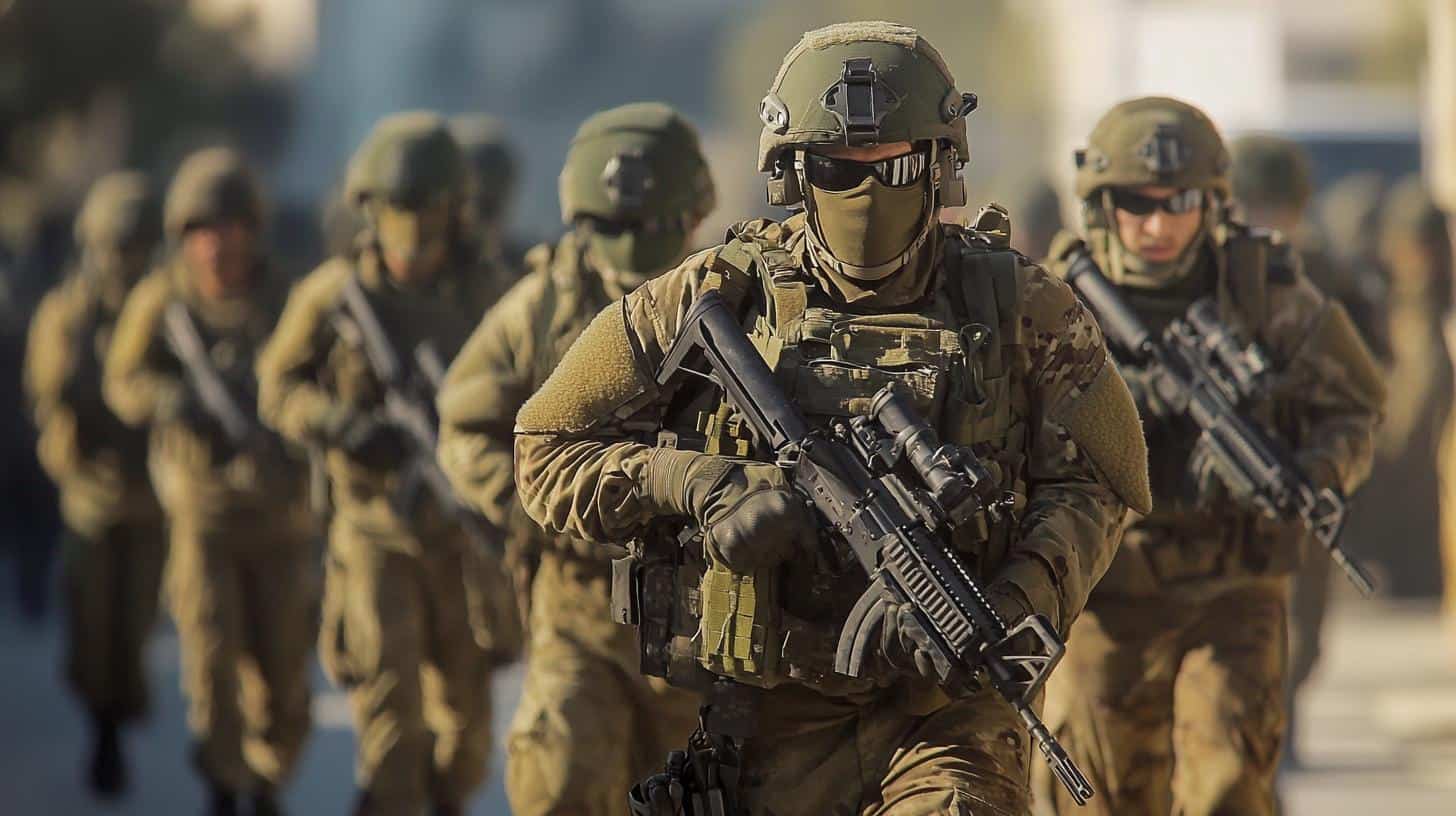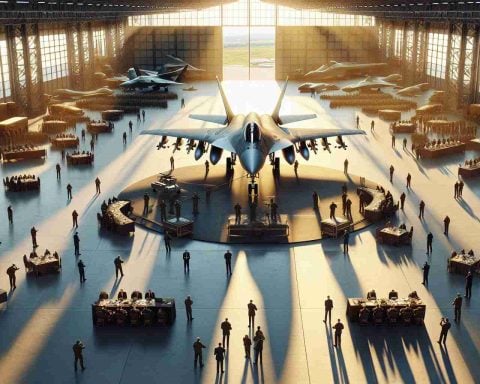In a significant strategic maneuver, the United States has decided to bolster its military presence in the Middle East. This includes the deployment of B-52 bombers, fighter jets, refueling aircraft, and Navy destroyers. The Pentagon has stressed that these additional forces serve as a strong deterrent against Iran and its regional allies, signaling a clear intention to protect American interests.
The timing of this deployment is crucial, as the USS Abraham Lincoln Carrier Strike Group will soon exit the area, leaving a temporary gap in U.S. naval presence. To counterbalance this, the U.S. plans to send more Navy destroyers from strategic locations such as the Indo-Pacific region or Europe, ensuring that their deterrent capabilities remain uninterrupted.
The Pentagon’s commitment to safeguarding U.S. personnel and assets was further underscored by recent enhancements, including the deployment of a THAAD missile defense system in Israel. This move is part of a broader strategy to stabilize the region amid increasing tensions between Iran and Israel.
Earlier this year, Iran launched two assaults on Israel—one following an assault on its consulate in Damascus reportedly carried out by Israel, and another in retaliation for the killing of influential figures aligned with Tehran in the region.
U.S. officials view the military buildup as essential for preventing potential escalations and demonstrating a readiness to respond to any emerging threats. These actions highlight Washington’s ongoing commitment to maintaining regional stability and protecting its strategic interests.
New Middle East Military Developments: A Closer Look at Their Impact and Controversies
In light of recent global developments, we turn our attention to the ripple effects of increased U.S. military activity in the Middle East, a region long associated with complex geopolitical dynamics. These moves by the United States are reshaping the fabric of life for many, presenting both opportunities and challenges on a variety of fronts. Beyond the military stratagem, let’s explore the broader implications and the controversies surrounding them.
The Lives of People and Communities Affected
The increased military presence of one of the world’s most powerful nations in the Middle East inevitably impacts local communities. In nations like Iraq, Syria, and surrounding regions, residents face uncertainty as military buildup can be both a source of protection and potential conflict escalation. For many locals, foreign military presence can lead to a mixed bag of economic opportunities through military contracts and jobs, but it can also evoke fears of becoming entangled in international conflicts.
The military concentration may inadvertently lead to shifts in resource allocation within these countries. Governments might prioritize security spending over crucial public services like education and healthcare, impacting everyday lives in profound ways.
Geopolitical Tensions and Controversies
This increase in American military assets has reignited age-old tensions among Middle Eastern nations and their global allies. Critics argue that this military buildup could provoke rather than prevent conflict with Iran, whose regional influence remains a contentious issue among international actors.
Additionally, these strategic maneuvers might cloud diplomatic efforts between neighboring nations. Countries that see U.S. forces as an occupying element may ramp up their own defense strategies, spurring an arms race in an already volatile region. Furthermore, internal politics within various Middle Eastern countries could be destabilized, as factions either align with or against these developments.
Advantages and Disadvantages: A Closer Examination
The advantages of this bolstered military presence predominantly revolve around enhanced security and deterrence. For the U.S. and its allies, a strong military overture assures protection of their interests, potentially acting as a shield against upcoming threats from adversaries like Iran.
Conversely, the disadvantages paint a stark picture. The financial burden of sustaining expansive military operations can strain U.S. resources. Moreover, potential miscalculations could lead to unintended military conflicts, costing lives and destabilizing regions further. This could undermine peacekeeping efforts and damage international relations.
Questions Arising from This Strategy
Will this strategy truly lead to long-term stability? Given the historical context, military strategies have, in some cases, exacerbated rather than resolved conflicts. Effective long-term stability often requires diplomatic efforts in conjunction with military strategies.
What are the economic implications for the U.S. and the region? While defense contractors might see a boon, taxpayers may question the economic sustainability of endless military engagements, echoing concerns voiced over prior deployments.
For more comprehensive information about U.S. military strategies and international relations, consider visiting U.S. Department of Defense and U.S. Department of State.
As these developments unfold, it is crucial for observers and stakeholders alike to remain informed about the ongoing shifts in the region’s geopolitical landscape. Balancing security needs with diplomatic and economic considerations will undoubtedly shape the future of the Middle East and influence global peace and stability.






















